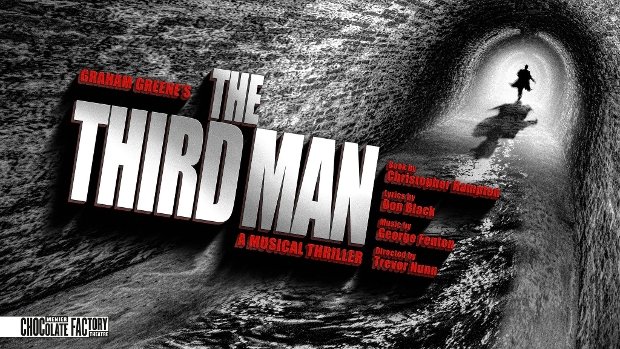
Times
The Third Man review — musical adaptation is an ambitious near-miss
Menier Chocolate Factory, SE1
MANUEL HARLAN
In the end, Christopher Hampton, Trevor Nunn and co don’t provide a totally convincing answer to the obvious question: why bother trying to make a musical out of one of the most atmospheric films of all time? But give them some credit for creating a brooding, ambitious near-miss.
Set in post-war Vienna, the Carol Reed-Graham Greene screen thriller from 1949 was, of course, blessed with an earworm of a signature tune by the zither player Anton Karas. Only the barest hint of it survives here, yet George Fenton’s score, while never delivering a melody that’s quite as memorable, still generates enough Kurt Weill-ish dissonances to accompany the intrigues of a set of careworn Mitteleuropean characters. Jason Carr’s small-scale orchestrations always hold your attention even when the plot shows signs of sagging.
Don Black’s lyrics playfully namecheck Stefan Zweig and Arthur Schnitzler, although they lapse into sentimentality whenever romance rears its head. Above all, Paul Farnsworth’s monochrome, rubble-strewn set design offers a clever approximation of the film’s portrait of a battered imperial city where the impoverished locals are reduced to using cigarettes as currency. Emma Chapman’s austere lighting goes some way to reproducing Reed’s stark, expressionist shadows.
It’s harder, though, to create a storyline with enough substance. We’re talking about a film, remember, whose celebrated villain, Orson Welles’ racketeer Harry Lime, makes his entrance late in the day and, before meeting his end in the sewers, leaves us with little beyond cynical bons mots about the Borgias and cuckoo clocks.
If, in his brief appearance, Simon Bailey captures Welles’ sly glamour, Hampton and Black’s book builds up the relationship between Lime’s old friend, the pulp fiction writer Holly Martins, and the Garbo-esque actress Anna Schmidt (here transformed into a cabaret chanteuse). Sam Underwood is required to play Holly (so brilliantly portrayed by Joseph Cotten in the movie) as a bit of a dolt who breaks into tears at regular intervals. Natalie Dunne makes the most of a droll vamp’s song in the nightclub scene, but is often saddled with trite sentiments that seem to belong in a different show altogether.
The climactic chase through the sewer seems perfunctory. Still, it’s a pleasure to see that the veteran Derek Griffiths turn up in the modest role of the porter, and I wish we could have had more of Edward Baker-Duly’s world-weary, duffel coat-clad Major Calloway.